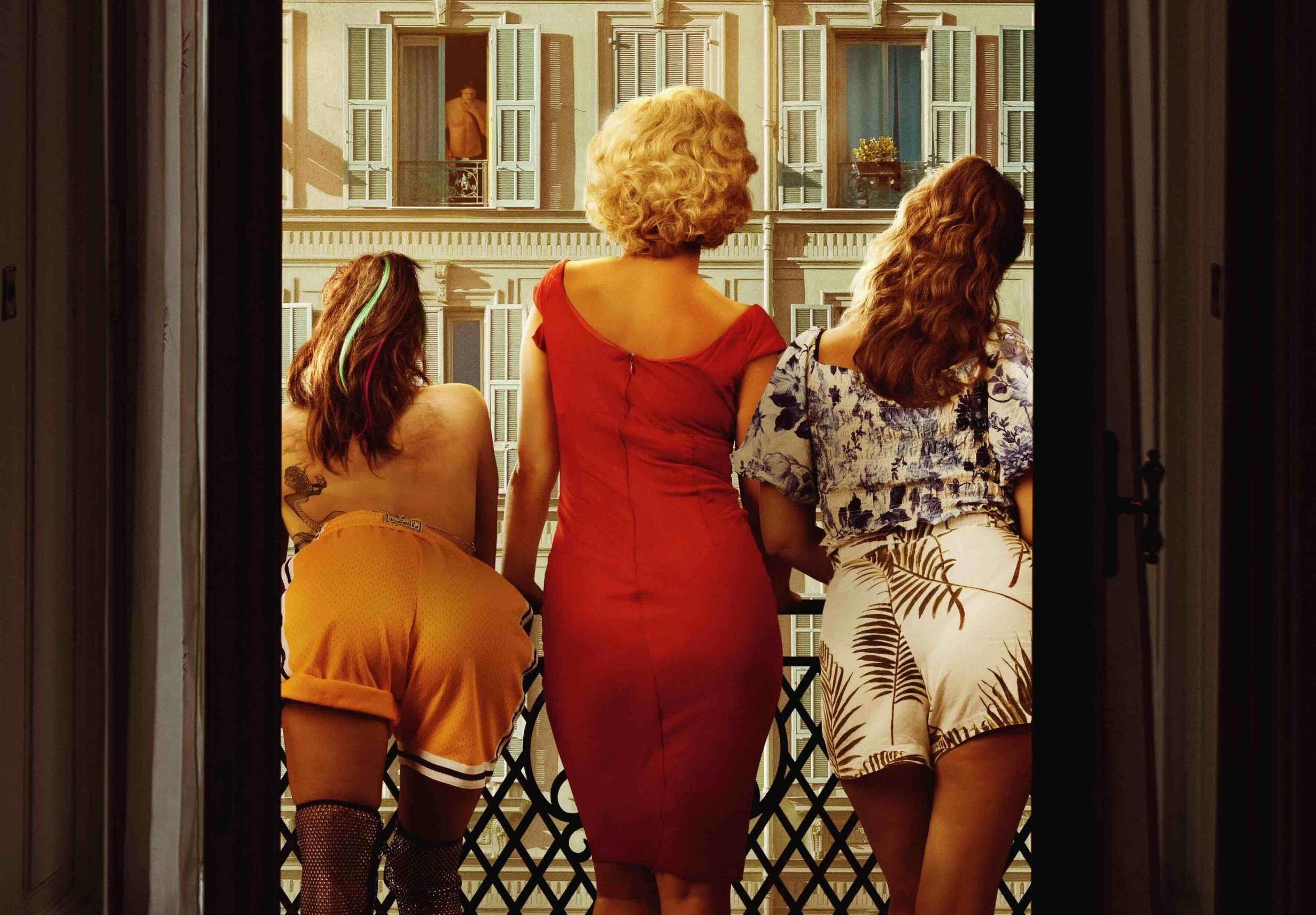‘THE BALCONETTES’: A Chaotic Mess with Flashes of Brilliance
‘The Balconettes’ opens in the sweltering heat of a Marseille summer, as the camera glides past sun-drenched apartment façades and into the chaotic lives of three women brought together by friendship, frustration, and fury.
Nicole, an aspiring writer dreaming of penning a romantic comedy, shares a flat with Ruby, an online sex worker. Their already unconventional dynamic is shaken up by the arrival of Élise, an actress fleeing both a bad TV shoot and a (very) clingy ex. When a handsome neighbour catches their attention, and then invites them over for a drink, things quickly spiral into bloody, absurdist chaos.
With its blend of horror, gore, and feminist satire, Noémie Merlant’s second film sets out to explore gender-based violence, carried by a bold trio of performers: Merlant herself, Souheila Yacoub, and Sanda Codreanu. I love a good mix of genres and chaos in a film, but the thing about blending genres is that it still needs direction. And that’s where ‘The Balconettes’ falls short. For all its bold intentions, a misandrist, trashy satire that’s unafraid to go all the way, it often feels like an unfocused outpouring of anger, more bitter than biting.
There are, however, scenes that stand out, moments where real cinema finally happens. They almost feel like they belong to a different film, with a more grounded, naturalistic tone. One is a gynaecologist scene where we catch a glimpse of the fearless performer Merlant can be, what she dares to attempt and actually pulls off. It’s short, but it’s powerful, evoking the discomfort and emotional complexity of a woman’s experience in such a space.
Another is a scene of marital rape, the film’s true anchor. It’s deeply uncomfortable, terrifying in its realism, and directed with striking precision. It strips away all the noise and chaos that dominate the rest of the film: no yelling, no smirking, no exaggerated stylisation, just raw, harrowing truth. In that single sequence, Merlant earns her stripes as a filmmaker. It’s a distillation of everything the film wanted to say, contained, concentrated, and painfully effective.
What is frustrating isn’t the film’s misandry. I’m all for seeing more unapologetically misandrist films, just like we’ve had our fair share of misogynistic ones. Cinema should hold all extremes. What bothers me is the lack of evolution, the way the film clings to a thesis rather than allowing itself to grow or breathe. The message is loud and insistent, leaving little space for the viewer to engage or reflect on their own. It speaks of men and male violence, yet paradoxically never confronts that presence in any real cinematic way. Men haunt every frame, yet feel strangely absent as characters or ideas.
Of course, the excess is intentional. We’re in Marseille during a heatwave, everyone’s sweating, an ominous storm brews. But the constant noise, the chaos, the relentless energy leave no room to think. The actresses are always performing at full throttle, and while that’s part of the film’s wild tone, it makes the quieter, more thoughtful moments all the more precious, and scarce.
Still, there’s joy here. It’s a pleasure to watch a film so thoroughly from the female gaze, to see female friendship explored with such chaotic energy, to see bare chests in the summer heat that feel completely un-sexualised. Just a single image, three women walking through the streets of Marseille, shirts off, smiling, wind in their hair, carries more beauty and freedom than many entire films. It only lasts a few seconds, but it stays with you.
In the end, ‘The Balconettes’ is messy, uneven, and bursting with ideas it doesn’t quite manage to shape. Merlant struggles to rein in her story, and the film spins off in too many directions. But for all its flaws, it’s an experience worth having, a bold, imperfect, but ultimately worthwhile piece of cinema.




